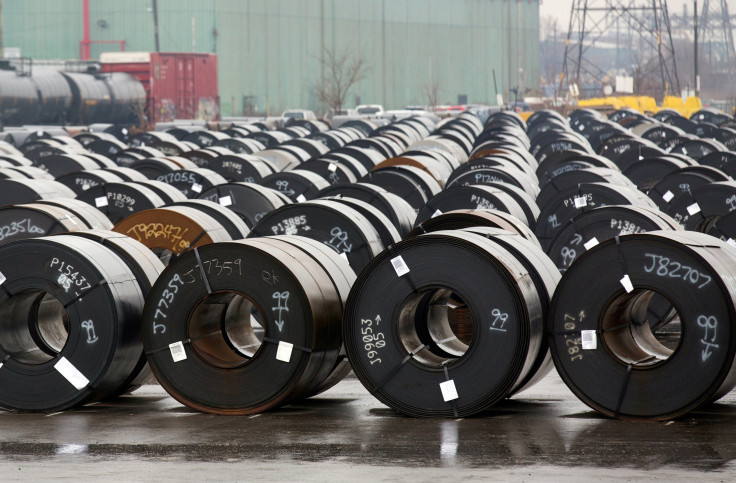Canada Imposes Retaliatory Tariffs On US, Chinese Media Exhorts EU To Follow
President Donald Trump announced “FAIR TRADE” to the world on his Twitter account Thursday, after the United States took away the exemptions on steel and aluminum import tariffs it had granted to its allies — Canada, the European Union and Mexico. All three affected parties had already said they would respond in kind, and Canada was the first to announce a slew of countermeasures.
Canadian Prime Minister Justin Trudeau criticized the U.S. decision, calling the tariffs “totally unacceptable” and their premise of Canada being a threat to national security “inconceivable.” He also said the trade balance between the countries was $2 billion in favor of the U.S., and that Canada bought half of all U.S. steel exports, easily the world’s biggest market for U.S. steel.
Chrystia Freeland, the minister of foreign affairs for Canada, announced the specifics of the retaliatory tariffs, which are imposed on U.S. exports totaling to 16.6 billion Canadian dollars (over $12.8 billion), “representing the value of 2017 Canadian exports affected by the U.S. measures.” The goods affected are steel, aluminum and several other products, ranging from foodstuffs and coffee to cosmetics and stationery to detergents and various other chemicals. The entire list was made available on Canada’s Department of Finance website.
The requirement of additional countermeasures was being considered too. The measures already announced would “take effect on July 1, 2018 and will remain in place until the U.S. eliminates its trade-restrictive measures against Canada. The countermeasures will not apply to U.S. goods that are in transit to Canada on the day on which these countermeasures come into force.”
The U.S. would also be taken to the World Trade Organization (WTO) by Canada for the newly imposed tariffs, an action already taken by China, India and some other countries. The EU said it would do the same too, and would also announce its countermeasures in the coming weeks.

Calling the U.S. move “protectionism, pure and simple,” European Commission President Jean-Claude Juncker said in a statement Thursday: “The U.S. now leaves us with no choice but to proceed with a WTO dispute settlement case and with the imposition of additional duties on a number of imports from the U.S. We will defend the Union's interests, in full compliance with international trade law.”
Exports from EU that are affected by the new tariffs were worth 6.4 billion euros (almost $7.5 billion) in 2017. The list of U.S. exports that EU would impose additional tax on has already been decided, and notified to WTO. The formal decision to slap proportionate countermeasures could be announced any time on or after June 17.
An editorial Friday in China’s Global Times — the English language publication of People’s Daily, the Chinese Communist Party’s official newspaper — exhorted the EU to “stand up to the U.S. as it waves its big stick, by raising their own.” Titled “Time for EU to rise up against US tariff peril,” the article said EU shouldn’t expect exemptions from U.S. protectionist tariffs, and instead prepare for an impending trade war. It also suggested a limited partnership between the EU and China.
“Although China and the EU may not work together on US trade issues, the two powers should take a firm stance when confronting the US. Both China and the EU should implement unreasonable concessions toward the US as Trump is unwilling to cooperate with the world and would rather use trade-related siege tactics to conquer foreign nations,” it said.
The import tariffs — 25 percent on steel and 10 percent on aluminum — have been imposed by the U.S. under Section 232 of the Trade Expansion Act of 1962. A report from the Department of Commerce in January this year said “excessive level of imports threatened to impair the national security because further closures of domestic production capacity would result in a situation where the United States would be unable to meet demand for national defense and critical infrastructure in a national emergency.”
Stock markets around the world, including in the U.S., mostly closed in the negative territory Thursday. Most U.S. steel stocks also ended the day’s trade lower.
© Copyright IBTimes 2025. All rights reserved.





















